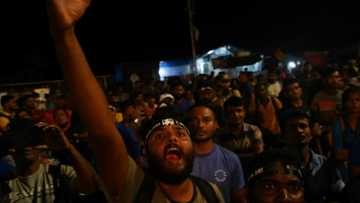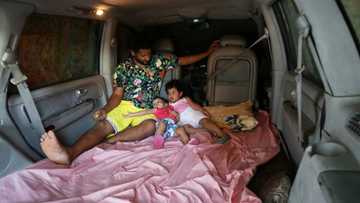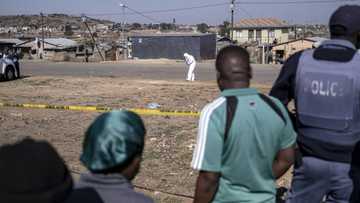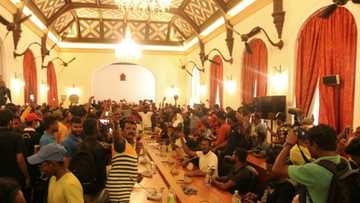Choppers and wheelbarrows: Kenyan vote race highlights inequality
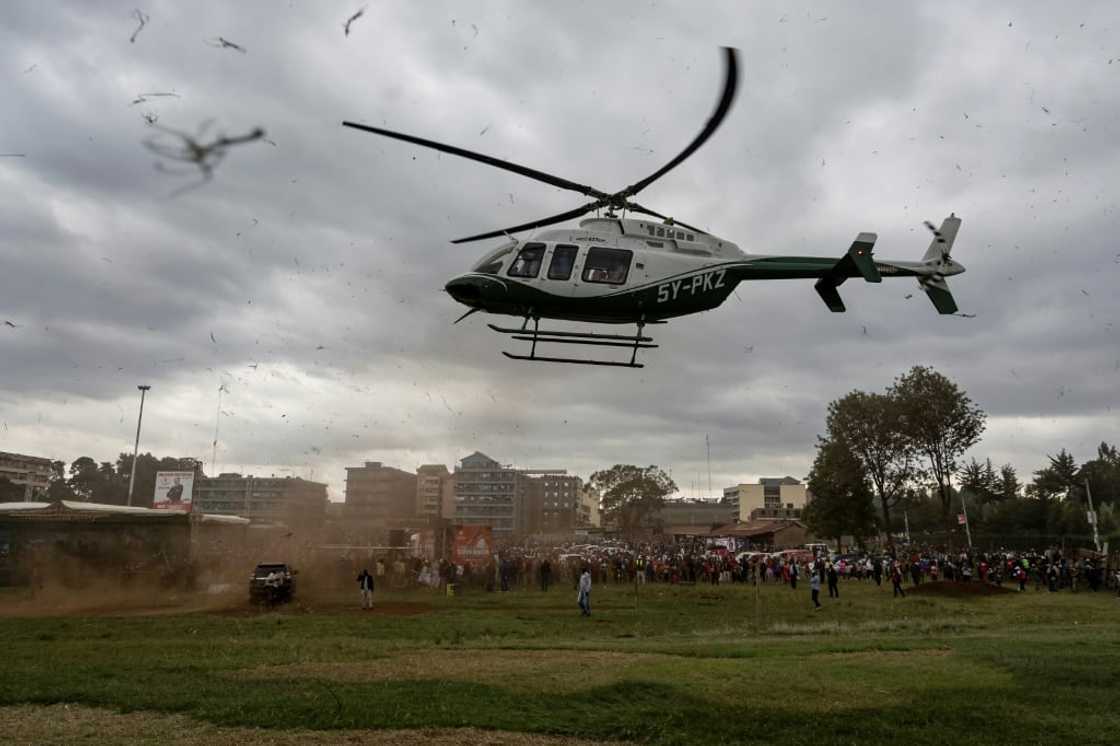
Source: AFP
New feature: Check out news exactly for YOU ➡️ find “Recommended for you” block and enjoy!
Seven helicopters lift off one by one in a cloud of dust from a remote region of western Kenya, blades spinning as an excited crowd below waves them away.
Raila Odinga -- the veteran opposition leader now backed by the ruling party in the high-stakes elections on August 9 -- has just wrapped up a political rally attended by thousands.
From the sleek choppers to convoys of luxury SUVs and trucks adorned with the faces and party colours of the politicians running for office, elections in Kenya mean money.
"You see these people flying all over with seven, 10 choppers... when they come, they tell you that they are for common mwananchi (Swahili for common man)," accountant Benard Ooko told AFP after Odinga landed at a rally in his lakeside hometown of Bondo earlier this month.
"Common mwananchi walks barefoot, the common mwananchi doesn't have food to eat."
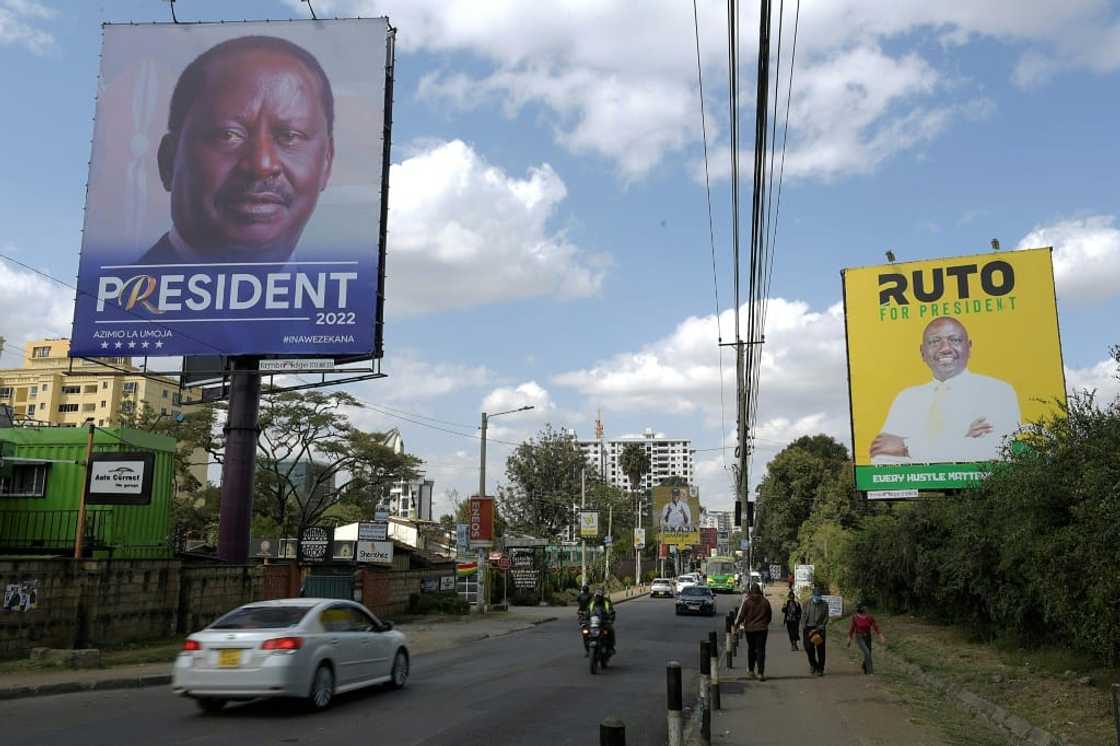
Source: AFP
PAY ATTENTION: Never miss breaking news – join Briefly News' Telegram channel!
The high-rolling campaign blitz underscores the stark inequality in a country where in 2020 four in every 10 people lived in poverty, according to a government report.
The disparity is feeding an atmosphere of unease as Kenya -- a nation of about 50 million people -- battles to recover from the coronavirus pandemic, aftershocks of the grinding war in Ukraine and a biting drought.
'Hustlers' vs dynasties
Deputy President William Ruto, Odinga's main rival for the top job, has come under fire for using choppers to chase votes while giving his supporters wheelbarrows.
The wheelbarrow is the symbol of Ruto's United Democratic Alliance party, and its wealthy 55-year-old leader has sought to portray himself as an advocate for the "hustlers" in a country ruled by dynastic elites he says are out of touch with ordinary people.
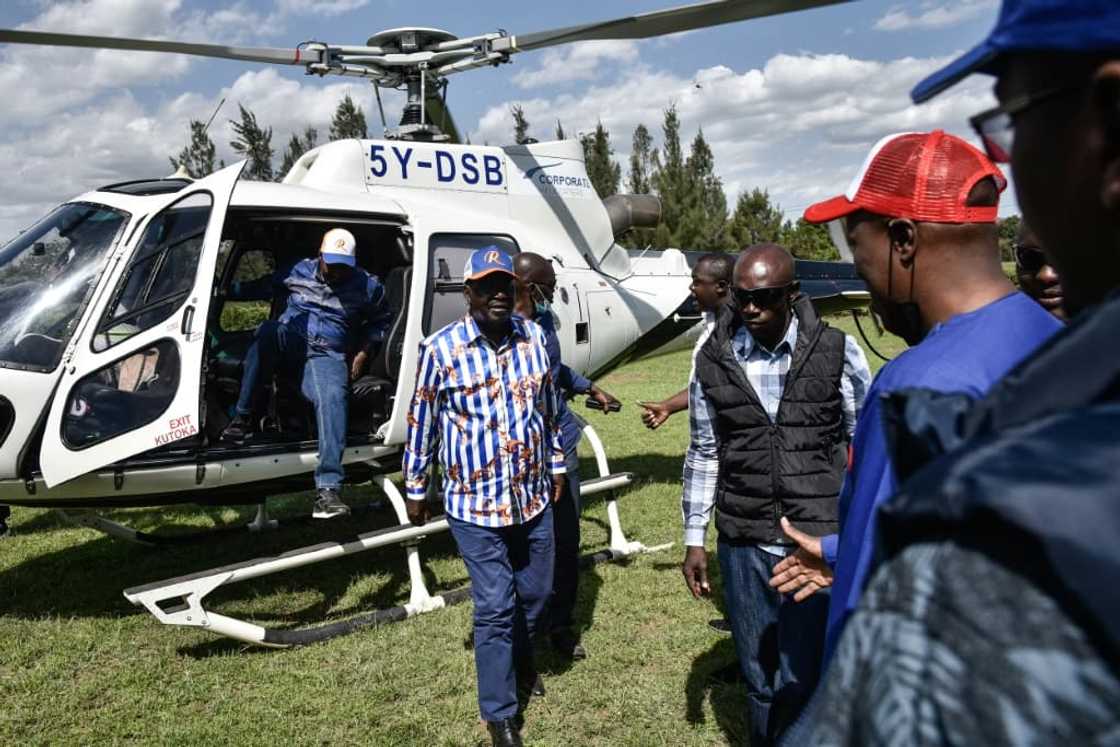
Source: AFP
The showbiz doesn't come cheap.
Parliament in August 2021 rejected a proposal to cap presidential campaign spending to the equivalent of $38 million per candidate. As a result, the spending remains limitless.
It costs about $2,000 an hour to hire a three-seater helicopter -- that compares to Kenya's minimum monthly wage of 15,120 shillings ($128).
There were 67 choppers registered to civilians in the country by the end of 2020, former Kenya Civil Aviation Authority director general Gilbert Kibe told AFP.
Data from the South African Revenue Service however showed that Kenya imported 325 helicopters from that country alone in 2020.
'Deprivation and hopelessness'
British charity Oxfam said in a report earlier this year that the two richest Kenyans own more wealth than the bottom 30 percent of the population, or some 16.5 million people.
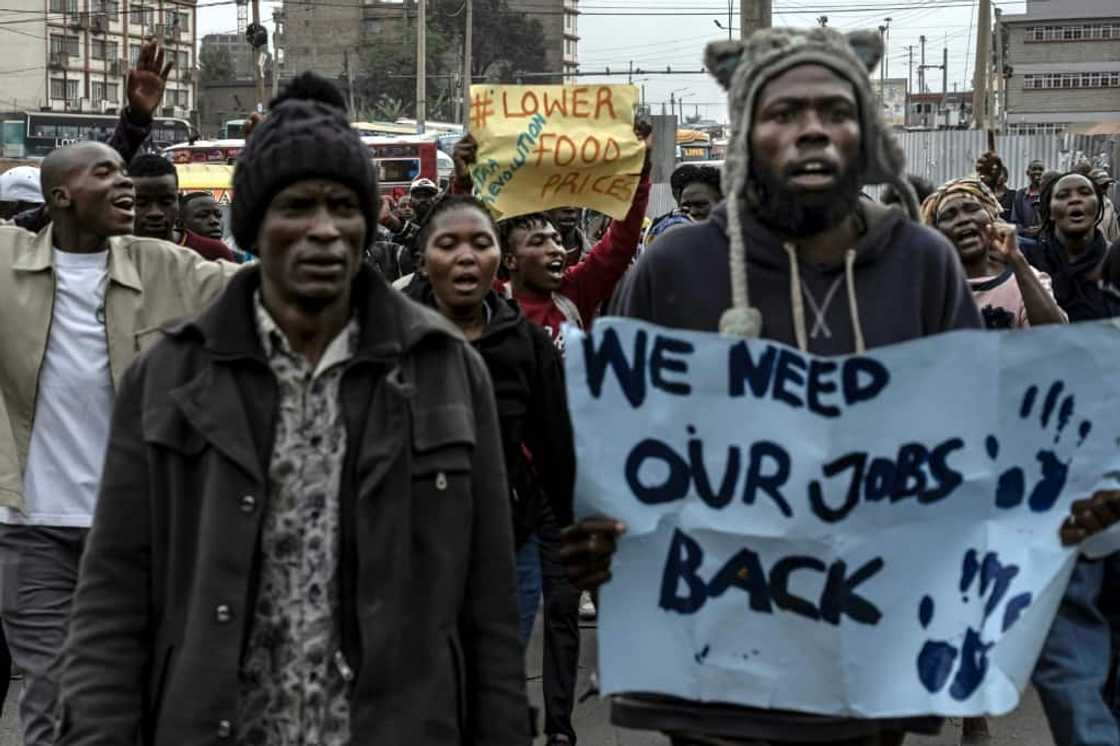
Source: AFP
"The extreme inequality in Kenya of increasing wealth and opportunity concentration and opulence, while millions of Kenyans are sinking more and more into undignifying deprivation and hopelessness, is an unfortunate political choice," said Oxfam's country director in Kenya, John Kitui.
"It is obscene, unethical and a form of social violence."
At least three in every 10 Kenyans live in extreme poverty, on less than $1.9 a day, the World Bank said in April.
They are struggling to cope with spiralling costs of basic goods such as food and fuel, while parts of the country are also suffering from a severe drought.
Inflation in the East African economic powerhouse jumped to a 58-month high of 7.9 percent in June, mainly as a result of skyrocketing food prices especially for staples such as maize and cooking oil, according to official figures.
'It's all PR'
Nevertheless, observers say the campaign showmanship can bag votes even from a population ground down by the floundering economy.
Scenes of men clinging on treacherously to the landing gear as their favourite politician's helicopter takes off have become commonplace, prompting the KCAA to crack down on what it called "James Bond" antics.
"The typical voter is attracted to the rich politician," political analyst Nerima Wako-Ojiwa told AFP.
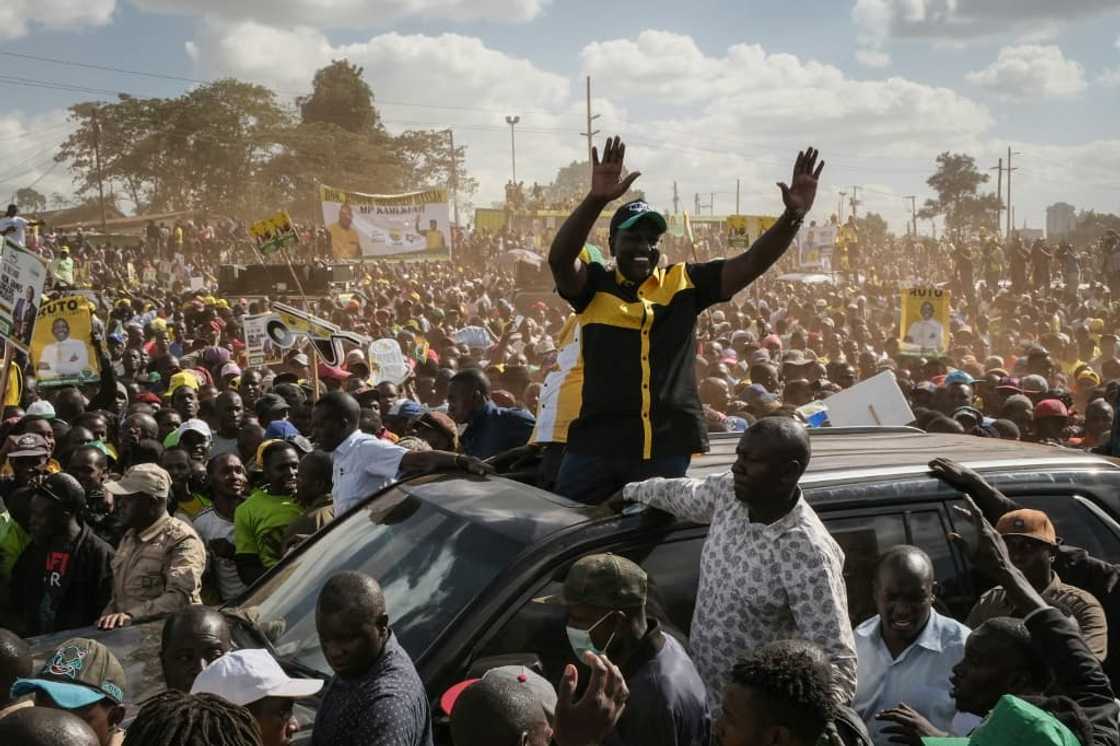
Source: AFP
But she said the huge wealth gap in multi-ethnic Kenya was not likely to influence voters' choices in August.
"This election is going to be defined by tribe first, gender comes second, then age comes third," she said.
Political analyst Joy Mdivo said however that choppers were "a necessity rather than a luxury" as politicians crisscross the vast country, combing for votes in remote villages far from the capital.
"Air travel is much safer than road, and as presidential candidates, their lives are a matter of national interest," Mdivo told AFP, referring to the poor state of Kenya's roads and the high number of fatal accidents.
But some voters are less than impressed.
All politicians are "cut from the same cloth" and will do little to change our lives, said 22-year-old Halima Wanjiru, a first-time voter this year.
"It's all PR. Only their relatives benefit when they get to office."
With corruption endemic in Kenya, businessman Samuel Onyango Wala called for investigators to check the candidates' campaign spending sprees.
"Where are they getting that money from? It's from the taxpayers," he said.
"They are looting the economy while the common mwananchi is really suffering down here and we are not happy with that at all."
New feature: check out news exactly for YOU ➡️ find "Recommended for you" block and enjoy!
Source: AFP

